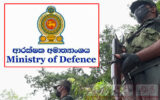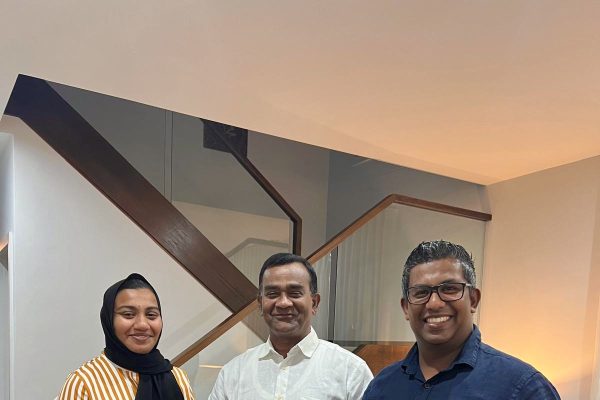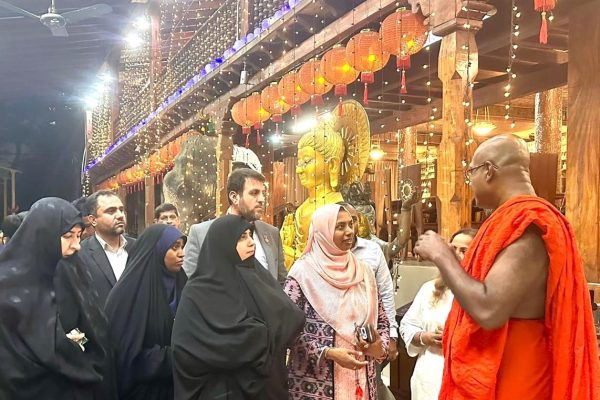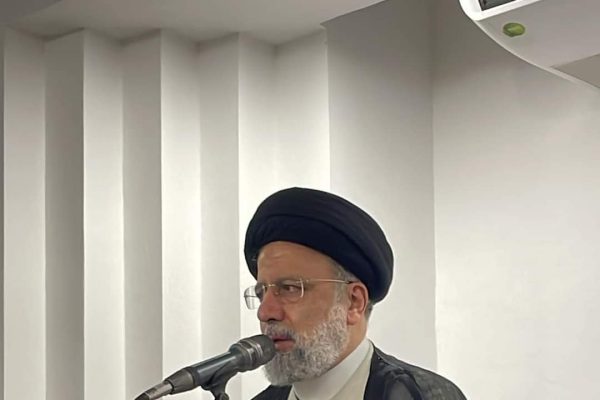COLOMBO : Recently a Webinar was held on Fishing Dispute between India and Sri Lanka. The webinar was organized by a You Tube Channel “Top 10 News”. The webinar was moderated by M I M Azlam, Director Top 10 News.
The other participants were Dr. Yousuf Marikkar, Master in Human Rights, PhD University of Colombo. Former Guest Lecturer University of Colombo and Ruhunu University and Dr. Ahmed Lebbe Mohamed Ayoob Khan, Dr. of Philosophy / Senior Lecturer / Member of Editorial Advisory of Sri Lanka / Awarded Senate Honours Award for High Impact Publication.
Moderator initiated the discussion with the elaborating the historical perspective of the Sri Lankan fishermen issue and recurring incidents of crossing maritime border by the Indian fishermen to fish in Sri Lankan waters. He also mentioned the arrest of few Indian fishermen along with boats by Sri Lankan Navy to stop illegal fishing
Speakers highlighted the fishermen issue, along with killing of innocent fishermen due to tug of war between Sri Lankan and Indian Governments. He said that Indian fishermen in big trawlers grab all the resources from Sri Lankan waters, poor Sri Lankan fishermen in small boats cannot compete them. Fishing industry is one of the major economic resource for Sri Lanka, but Sri Lankan fishermen are the most oppressed people of the world.
Highlighted that growth of the fishing sub-sector has been stifled due to poaching by fishermen from India, particularly from the state of Tamil Nadu off the northern coast of Sri Lanka, largely off the districts of Jaffna and Mannar. The fishermen of Sri Lanka and India have been fishing in the Gulf of Mannar, Palk Bay, Palk Strait and elsewhere harmoniously from time immemorial using traditional equipment and methods of fishing. However, due to technological advancements the marine resources on the Indian side of the Palk Bay and elsewhere have been aggressively harvested and overexploited. The fisherpersons of northern Sri Lanka have not been able to avail of such technological advancements. Therefore, due to the relatively greater stock of marine resources on the Sri Lankan side of the Gulf of Mannar, Palk Bay and Palk Strait, Indian fishermen have been poaching in Sri Lankan waters and are involved in illegal and unfair practices such as ‘bottom trawling’ and ‘pair trawling’. Illegal, unreported and unregulated (IUU) fishing is a universally banned activity, but India continuing the said illegal activity, thus making the life of Sri Lankan fishermen miserable. The plausible cause of non-linear growth in fish catch in the Jaffna, Kilinochchi, and Mannar districts has been increased due to poaching by Indian trawlers.
Moreover, losses incurred due to Indian poaching, the fishing by bottom trawling kills future streams of income due to mass killings of under-grown fish as trawlers shovel the bottom of the seabed indiscriminately. Demanded that Indian Central Government to break their long silence on bottom trawling and meddling, hurting the poor fisher community mainly in Sri Lanka’s North thus leading to economic murder of Sri Lankan fisher persons. India needs to be magnanimous over Sri Lanka’s plea in the region.
From centuries Sri Lankan fishermen were fishing in each other areas without conflict. This conflict started with the agreement on maritime boundary between 1974-76. Knowing the maritime border, why Indian fishermen cross border despite knowing the boundary line of their country. Indian Fishermen use large trawlers which hunt the non-targeted organism along with the young fish effecting the breeding cycle of fish; although this activity is banned for Sri Lanka fishermen but Indian fishermen do that recurrently. The Indian fisherman not only violate the maritime boundary but also use internationally banned fishing procedures. On the other hand, Sri Lankan fishermen are not allowed to fish on Indian side. Indian violence led to loss of Sri Lankan fishermen. Sri Lankan fishermen cannot compete with Indian fishermen using advance technology for fishing. He emphasized that illegal, unreported and irregular fishing should be stopped. The maritime boundary between the two countries is well defined, so both countries can solve the problem. Otherwise, international support is needed to solve the issue.













